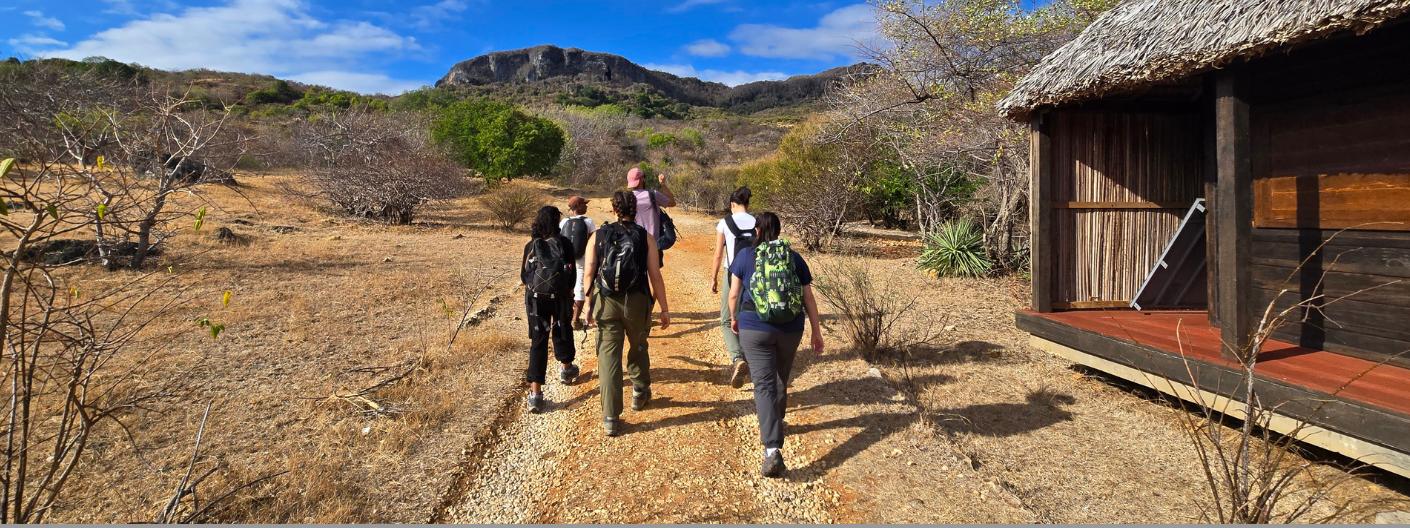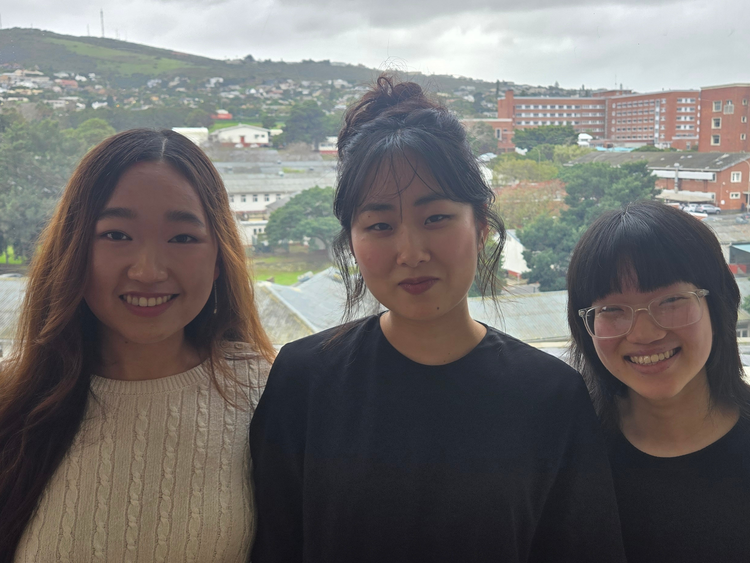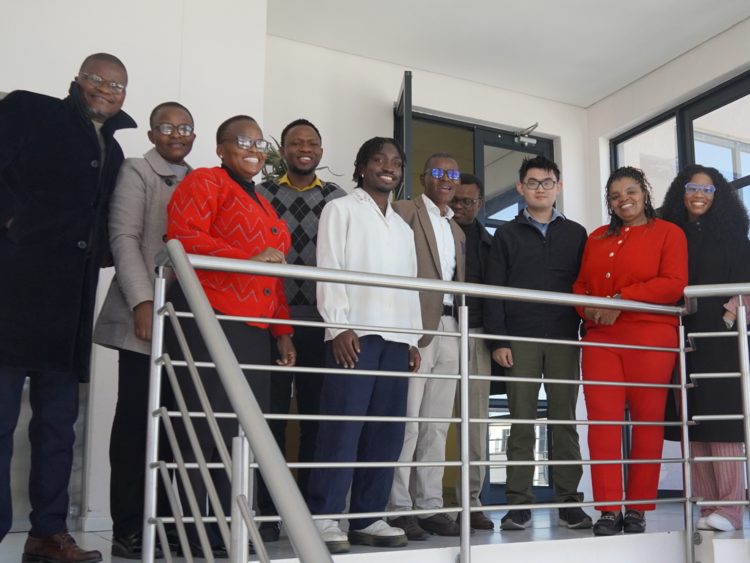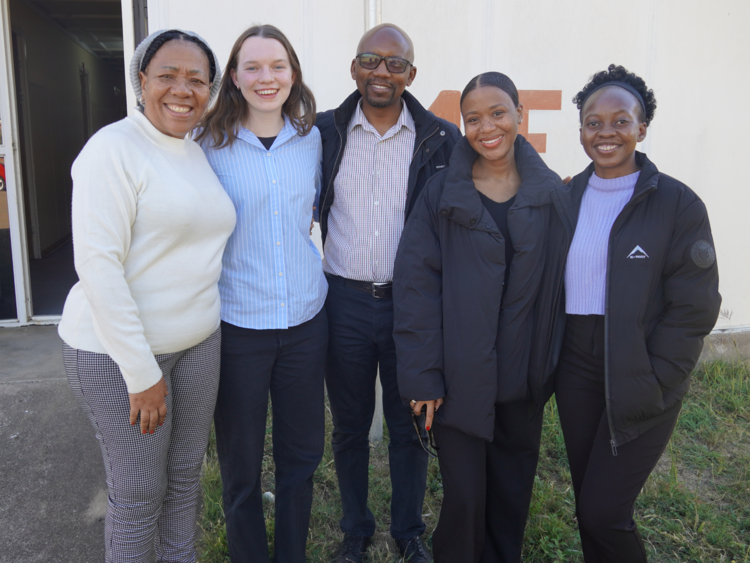Princeton Students at Forefront of Global Health

This summer, the Center for Health and Wellbeing (CHW) sponsored 92 opportunities for Princeton University students to tackle critical global health challenges — from mitigating antimicrobial resistance, to developing therapies for neurogenerative diseases and cancer, to preparing for the next pandemic.
Open to undergraduate and graduate students in all fields of study, the opportunities are offered through the Center’s Internships in Global Health program.
“These immersive, fully funded experiences, which include internships, senior thesis research, and other health-focused endeavors, bring students to the forefront of global health,” said Gilbert Collins, director of global health programs and executive director of CHW. “They are designed to enrich academic coursework, allowing students to apply skills beyond the classroom and to impact real-world health issues while exploring new disciplines, cultures, and careers.”
Representing the vast majority of offerings, internships are arranged by CHW and hosted by universities, government agencies, health care facilities, research institutions, and other partners in global health. Participating students travel throughout the United States and around the world. Some interns are based in Washington, D.C., New York City, Trenton, and other U.S. cities, while others venture as far as Brazil, Vietnam, and Australia.
Closing the Gap in Health Disparities
In 2025, 16 CHW-sponsored Princeton students completed internships with partners in sub-Saharan Africa, which shoulders a disproportionately high percentage of the world’s disease burden. The resulting health disparities are attributed to a myriad of factors, including widespread poverty, inadequate health systems, a shortage of health care professionals, and insufficient access to medicines.
 (From left) Emma Hsiao ’28, Hannah Shin ’26, and Alina Ho ’26 interned at the Western Cape Department of Health and Wellness in Cape Town, South Africa.
(From left) Emma Hsiao ’28, Hannah Shin ’26, and Alina Ho ’26 interned at the Western Cape Department of Health and Wellness in Cape Town, South Africa.
Princeton students addressed many of those challenges and others during their summer internships. Over the course of eight to 10 weeks, they worked alongside scientists, clinicians, scholars, and policymakers in various organizations to study the determinants, consequences, and patterns of disease across societies, to better understand barriers to care, and to develop strategies for improving health systems and health outcomes.
Their projects tackled HIV prevention, testing, and intervention; antimicrobial resistance; cancer care; supply chain management; and additional issues affecting population health. A sampling of this work is featured in the following accounts.
Fighting HIV and AIDS
An estimated 67 percent of people living with HIV globally reside in sub-Saharan Africa, making HIV/AIDS a top public health priority for the region.
The African Comprehensive HIV/AIDS Partnerships (ACHAP) hosted two Princeton students this summer. Located in Gaborone, Botswana, the nonprofit organization leverages implementation science to enhance governmental response to pressing health challenges.
◊Avery Fuller ’26, a neuroscience major minoring in global health and health policy (GHP), was one of the two visiting students. Based on his interest in gender health equity, Fuller designed a study to explore the attitudes of young men and women toward voluntary medical male circumcision (VMMC), a proven method for reducing the risk of HIV infection and other sexually transmitted diseases. His findings will inform a robust, youth-targeted public service campaign to promote VMMC and HIV prevention in Botswana.
Emma Hsiao ’28 interned at the Western Cape Department of Health and Wellness in Cape Town, South Africa, where she worked with the Department’s HIV team. Among her key projects, Hsiao was tasked with developing strategies for more effective HIV testing. She visited hospitals and clinics to assess weaknesses in the testing system, from quality control to staff shortages. “The surveys helped me see things we take for granted in our health care systems here in the United States, like the digitalization of medical records,” she said. Leaning into the data analysis skills she acquired at Princeton, Hsiao identified the need for a sustainable way of tracking patients and their test results. She is hopeful that her project will help to improve the HIV testing process in Western Cape and facilitate earlier intervention for patients diagnosed with the infection.
Combatting Antimicrobial Resistance
 Avery Fuller '26 (fifth from left) and Elliot Lee '26 (third from right) with the ACHAP team in Botswana.
Avery Fuller '26 (fifth from left) and Elliot Lee '26 (third from right) with the ACHAP team in Botswana.
Elliot Lee ’26, an operations research and financial engineering major with a GHP minor, worked with ACHAP on a project addressing antimicrobial resistance (AMR). While AMR is a worldwide problem, it is exacerbated by the poor regulation of antimicrobials in sub-Saharan Africa. “A lot of medicines get lost when they trickle down through the system, or they aren’t recording properly, and as a result there are shortages,” he noted. “Being on the ground improved my understanding of these different dynamics.”
Lee used predictive modeling to optimize the Botswana supply chain mechanism to help the country distribute antimicrobials more efficiently and get them to the patients who need them most. “That would improve the health of a lot of people throughout the country and modernize the health system,” he added. Lee believes the model could be applied to other low- and middle-income countries, ensuring they are “robust and prepared for any challenges that might arise in the future.”
Improving Cancer Care
Kaitlyn Greppin ’26, a medical anthropology major pursuing a GHP minor, contributed to a collaborative project between the University of Botswana and the Rutgers Cancer Institute of New Jersey. “Cancer has become a growing concern in Botswana,” said Greppin. “My internship specifically focused on breast cancer prevention and early detection, and on a patient navigation program to improve a patient’s pathway through the health care system during breast cancer treatment.”
 Kaitlyn Greppin ’26 (second from left), who contributed to a collaborative project between the University of Botswana and the Rutgers Cancer Institute of New Jersey, is pictured with members of the research team.
Kaitlyn Greppin ’26 (second from left), who contributed to a collaborative project between the University of Botswana and the Rutgers Cancer Institute of New Jersey, is pictured with members of the research team.
Greppin valued the opportunity to learn about global health in a different context and to potentially improve outcomes for cancer patients in a low-resource setting. “The reality is that where you are in the world determines whether or not you will survive. That’s something to grapple with,” she said. “The science is there; we’ve figured out how to diagnose and treat breast cancer effectively. The challenge is in the implementation.”
Strengthening Health Systems with Technology
Forensic pathology can play a significant role in public health through mortality and disease surveillance. Information gleaned from autopsy reports can be useful to clinicians, epidemiologists, and policymakers, providing valuable knowledge about infectious diseases and other emerging health threats.
Alina Ho ’26, a psychology major pursuing a GHP minor, and Hannah Shin ’26, who is majoring in philosophy, collaborated on a forensics pathology project for the Western Cape Department of Health and Wellness.
“Forensic pathologists in South Africa have a heavy caseload,” explained Ho. She and Shin worked with them to standardize, streamline, and expedite the autopsy reporting process, demonstrating how AI technology could reduce the turnaround time from three to six months to a few weeks.
Shin also evaluated the impact of integrating new technology into the health care delivery system. She met with clinicians and studied procurement to assess how a piece of equipment could automate the process for taking a patient’s vital signs. “If it makes sense operationally, this machine could improve efficiency, reduce patient wait times, and take the pressure off nurses who are dealing with overcrowded clinics,” she said.
Curbing the Spread of Vector-Borne Diseases
Climatic changes, poor living conditions, and other factors make sub-Saharan Africa an ideal breeding ground for vectors like mosquitoes and thus vulnerable to the spread of malaria, dengue, and other infectious diseases.
Grace Kaneshiro ’27, an ecology and evolutionary biology major pursuing a GHP minor, and Chin-Yi Kong ’28 studied vector-borne diseases in Madagascar this summer. Under the Madagascar One Health Research Initiative and the oversight of Princeton Associate Research Scholar Benjamin Rice, they collected and analyzed data from wildlife and human communities to better understand how these diseases are transmitted as well as the human health consequences of environmental disturbances.
“The internship experience was exciting academically. Not only did I get the opportunity to do field research and get a look at what that can be in ecology and evolutionary biology, but it also challenged me to think about global health in different ways,” said Kaneshiro. “It pushed us to consider climate and changes in forest cover, and how disease is spreading in both animal and human populations.”
“I was surprised by how closely intertwined the local communities and ecosystems are,” added Kong. “Seeing all of these ecosystems and how there’s such an impact of disease on animal health, human health, and environmental health furthered my interest in epidemiology and ecology and also possibly a career in health policy or global health.”
Inspiring Global Health Careers
Each year, CHW’s Internships in Global Health program is dually impactful in that it not only advances pioneering research but also inspires future global health leaders, whether students choose a path toward medicine, public health, health policy, or another field.
 Princeton Associate Research Scholar Benjamin Rice, interns Grace Kaneshiro ’27 (standing third from left) and Chin-Yi Kong ’28 (standing fourth from left), and their research team collected mosquitoes near Antsiranana, Madagascar to study disease transmission.
Princeton Associate Research Scholar Benjamin Rice, interns Grace Kaneshiro ’27 (standing third from left) and Chin-Yi Kong ’28 (standing fourth from left), and their research team collected mosquitoes near Antsiranana, Madagascar to study disease transmission.
“The experience fueled my passion for health policy and broadened my understanding of global health in different contexts,” remarked Avery Fuller. “I saw how countries like Botswana can be more collaborative under economic constraints. They didn’t lose their optimism in terms of the work they can do; it’s been really inspiring to see that kind of resilience and dedication.”
The internship in Botswana was also affirming for Kaitlyn Greppin, who plans to attend medical school after graduating from Princeton. She is confident that her work in southern Africa will inform her work as a physician, wherever she chooses to practice. “I’ve seen the difference that physicians can make in the treatment pathway and the special role they can play in someone’s life,” she said.
While summarizing his summer opportunity, Elliot Lee highlighted the University’s informal motto — Princeton in the nation’s service and the service of humanity – which has been a guiding influence in his pursuits.
“To actually see how the world could work better as a result of the work you do makes your entire Princeton experience more meaningful,” said Lee.
Summer 2026 Internships
Students can visit CHW’s Global Health website for more information about CHW’s Internships in Global Health program. Details about Summer 2026 internship opportunities will be available in November.
